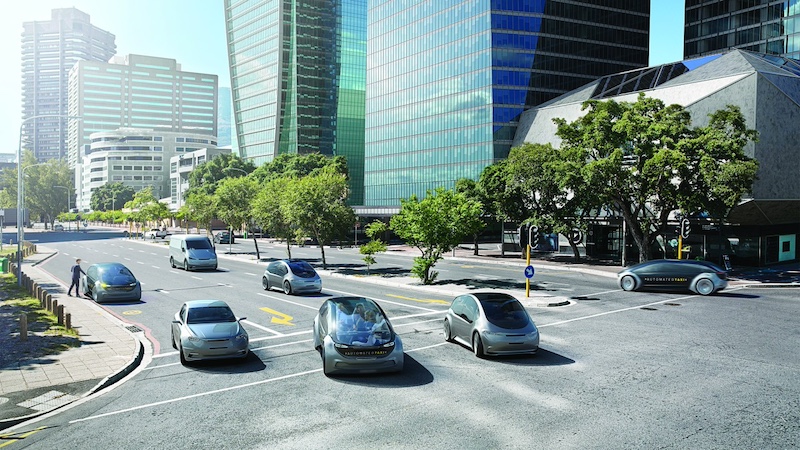Four years ago, the German automotive industry joined forces with 21 partners in a project to develop the world’s first structures for the verification of safety standards for “automated vehicles” – also referred to as autonomous or self-driving vehicles – in an urban environment. The results of the joint Verification and Validation Methods (VVM) project are now available.
The findings of the pre-competitive research project, funded by the German Federal Ministry for Economic Affairs and Climate Action and initiated by the VDA flagship initiative autonomous and connected driving, were discussed in detail at the final presentation at the Carl Benz Arena in Stuttgart.
The higher the level of automated driving and the more complex a system’s area of application, the more factors need to be taken into account during development. The first SAE Level 3 systems for freeway driving and an SAE Level 4 system for driverless parking have already been approved.
Expanding the use of these systems to other applications – such as urban traffic – means that the vehicle and system become much more complex and subject to far stricter requirements. This explains the need for suitable verification and validation methods, which was the focus of the VVM project’s efforts.
The challenge of urban traffic
Roland Galbas from Bosch, the coordinator of the VVM consortium project, says: “Pedestrians, cyclists, motorized two-wheelers, intersections with limited visibility: one of the biggest challenges for automated driving systems is coping with traffic in an urban environment, which is characterized by a huge volume of road users, traffic light systems, traffic signs, and vehicles.
“For future vehicles to be able to handle even extremely rare scenarios, they will need comprehensible structures and processes that not only enable the safe operation of a system in exceptional situations, but can also verify that maneuvering is done safely.”
Dr Mark Schiementz from BMW, the co-coordinator of the project, says: “The essence of the VVM research project is to verify that automated driving functions react safely and reliably, and that they also benefit customers in terms of precision and quality.
“In addition to compliance with regulations, the guiding principle behind the German automotive industry’s work is not only to get technological progress onto the roads as quickly as possible, but also to provide safe vehicles and systems that can be relied on at all times. And this reliability starts right from the development of these systems.”
Approval for road use requires verifiable safety
Right from the very beginning of the design and development of automated driving functions, safety is the overriding consideration. And safety functions must be verified before a vehicle can be approved and certified for use in road traffic.
To be able to provide this verification, the 21 project partners have jointly developed a model comprising a suite of procedures, methods, and tools. This allows a “security argumentation” to be employed to verify that the system is safe to use.
To develop the methodology for this model, the partners worked together in several subprojects. If it were applied industry-wide, the defined model would provide the basis for verifying the safety of automated vehicles.
Dr Helmut Schittenhelm, project coordinator at Mercedes-Benz, says: “The models developed here make it possible for the first time to provide all automakers with the same structures for the verification and validation of automated driving systems in urban areas. This may then also lead to industry-wide standards that could make road traffic even safer for all road users.”
Technology pioneer from Germany
The VVM project’s methodological approach is the world’s first standard to also take industrial processes into account, once again underscoring the German automotive industry’s pioneering role in automated driving.
The world’s first regulation for fully automated driving (SAE Level 4) came into force in 2021, when Germany enacted a law to that effect. In 2022, a corresponding regulation outlining the technical details was passed to allow such vehicles to be registered and operated on German roads.
These latest developments are yet another example of how the German automotive industry is tackling the complexity of automated driving and making it more manageable.
At the end of its project term, and building on the results of its Pegasus and SetLevel predecessor projects, VVM now delivers the world’s first consistent methodical approach to safety for automated driving in an urban environment, enabling industry-wide collaboration and value creation.
The scenario-based safety verification approach pursued in the project could help to set global standards once it has been approved by the authorities.
VVM has created a reference system for the industry that is relevant for the future, closes a methodological gap for practical validation, and secures the pioneering role of German industry in international competition on automated driving.

